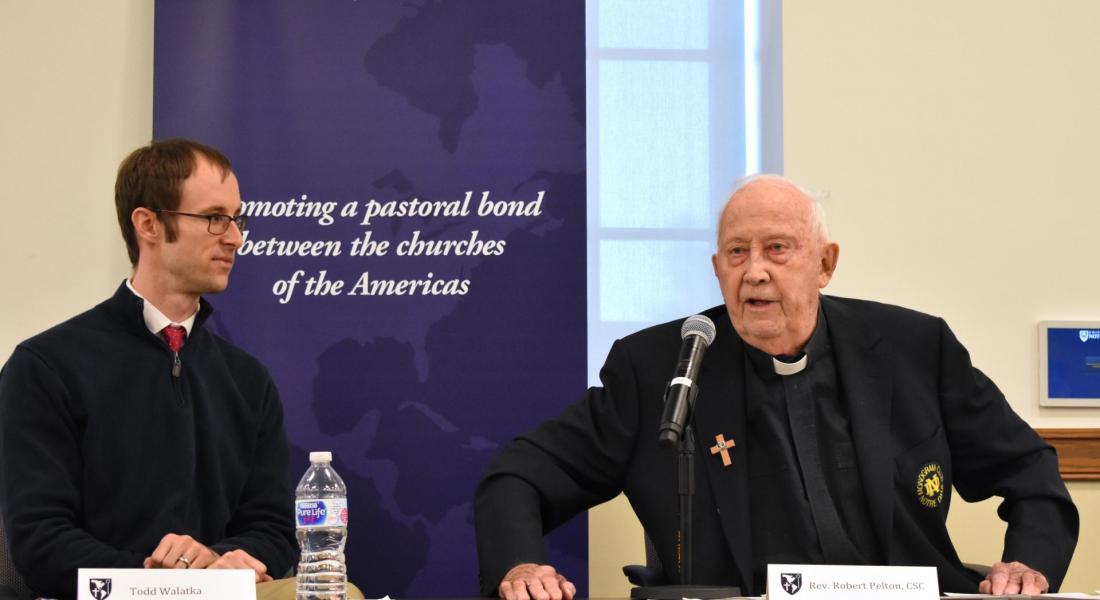
A priest who has spent much of his life studying the slain Salvadoran Archbishop Óscar Romero said seeing him made a saint at a ceremony in Rome earlier this month was both “extraordinary” and “uplifting.”
“I’ll never forget it,” said Rev. Robert Pelton, CSC, who described a sense of connection and an attitude “of deep prayer and communion” among the estimated 70,000 who attended Romero’s canonization in St. Peter’s Square.
The 97-year-old spoke October 24 at the University of Notre Dame in a panel discussion on “Celebrating Óscar Romero’s Canonization.” The event was hosted by Latin American/North American Church Concerns (LANACC), of which Pelton serves as director emeritus.
Romero was assassinated nearly four decades ago by a right-wing death squad while saying Mass. He served as archbishop as the country was on the brink of civil war and, at a time when El Salvador was run by a handful of powerful families, was an outspoken proponent of social and economic changes to alleviate poverty.
Today he is revered by many within El Salvador and Latin America for his advocacy on behalf of the poor and marginalized.
Romero’s life and legacy have been a source of study by LANAAC, which has long championed his canonization. The organization hosts the annual Romero Days conference, which explores and celebrates his legacy, and Pelton has written or edited several books about his life and produced the award-winning documentary Monseñor: The Last Journey of Óscar Romero.
Next year’s conference will examine Romero’s advocacy of nonviolence and the gang violence that has paralyzed El Salvador.
LANACC Director Peter Casarella said Romero was one of thousands of Salvadorans who shed their blood out of a love for Christ and for justice.
“We are not going to let ourselves turn Romero into a bobblehead,” he said. “Now that he is a saint, there is even less reason to place him on a pedestal for adoration.”
Romero’s canonization caps a decades-long push to declare him a saint despite resistance from some who viewed him as more of a politician than a priest.
Todd Walatka, who specializes in contemporary Catholic systemic theology at Notre Dame, said it was fitting that Romero was canonized alongside Pope Paul VI, who promoted reform within the Church and policies that favored the poor.
His work deeply influenced Romero’s theology and ministry, as did the assassination of his close friend and fellow priest, Rutilio Grande, by Salvadoran security forces in 1977.
Romero’s episcopal model, according to Walatka, was to feel or to think with the Church, meaning the whole people of God: “He was with the people of God, particularly the poor, living and learning and teaching.”
Carmen Nanko-Fernández, who teaches Hispanic theology and ministry at the Catholic Theological Union in Chicago, called Romero “a saint who shakes us out of our fear and complacency,” and one who caused disruption and discomfort by criticizing those in power.
If he were alive today, Romero would be “a presence to be silenced” because of his probable outspokenness on issues like the taking migrant children from their parents in the US.
“In our shameful time, I cannot imagine that Romero would be a welcome guest,” she said.





